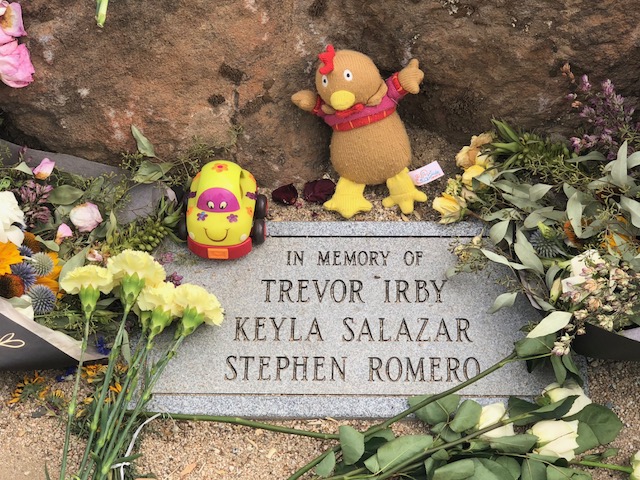Judge dismisses key defendants in Gilroy shooting victims’ lawsuit
Plaintiffs plan to appeal Superior Court’s decision, attorney says
![]()

By Marty Cheek
A superior court judge for the county dismissed the city of Gilroy, the Gilroy Garlic Festival Association, and security provider First Alarm from a lawsuit filed by victims of the deadly Gilroy Garlic Festival shooting four years ago.
 On Thursday, Nov. 16, the Superior Court of California for the county of Santa Clara granted the city of Gilroy’s motion for summary judgment in the case of Wendy Towner et al. v. Gilroy Garlic Festival Association, Inc. et al. This decision by the court dismisses the city of Gilroy from the lawsuit.
On Thursday, Nov. 16, the Superior Court of California for the county of Santa Clara granted the city of Gilroy’s motion for summary judgment in the case of Wendy Towner et al. v. Gilroy Garlic Festival Association, Inc. et al. This decision by the court dismisses the city of Gilroy from the lawsuit.
Judge Frederick S. Chung found insufficient evidence the defendants could have reasonably foreseen and prevented the actions of the lone shooter.
The victims allege negligence on the part of the festival organizers and the city for lack of adequate security at the event when, on July 28, 2019, a gunman opened fire, killing three people and injuring 17 others. The shooter killed Stephen Romero, 6, of San Jose; Keyla Salazar, 13, of San Jose; and Trevor Irby, 25, of Romulus, New York.
The case was initiated Nov. 12, 2019. The city, the festival’s nonprofit organization and First Alarm filed motions for summary judgment Dec. 15, 2022. When bringing a summary judgment motion in litigation, a party is arguing there is no real dispute about material facts so they are entitled to win the case as a matter of law.
An attorney for the victims plans to appeal the dismissal, arguing it sets a dangerous precedent for liability and security requirements at large public events. They claim there were warning signs the shooter had scoped out the festival ahead of time and gaps in perimeter fencing that were not properly addressed by organizers.
While the judge’s tentative dismissal absolves the city, festival association, and security provider of responsibility, the victims’ attorneys contend it improperly shields event organizers from making changes to prevent similar tragedies. The planned appeal ensures the debate over liability in mass shootings at public events will continue in this case.
A separate lawsuit on behalf of other victims against the same defendants continues. Tamara Williams vs. Gilroy Garlic Festival Association, Inc. et al was filed in January 2022 and is scheduled for a case management conference in March 2024.
The plaintiffs in both cases are represented by San Francisco-based attorney Randall Scarlett. They aim primarily for accountability rather than monetary damages for the negligence they allege enabled the deadly shooting and said they will appeal the ruling.
“The Court’s unfortunate ruling essentially holds that festival organizers and security stakeholders in California will be under no duty to take precautions such as securing or monitoring gates like the one the shooter utilized at the 2019 Festival against potential intruder violence or shooters unless there had been a prior shooting at such a festival or event,” Scarlett said. “Plaintiffs feel that a jury should be able to determine the appropriate level of security at these large public events in their community.”
Mayor Marie Blankley said the city remains “profoundly empathetic” toward all individuals and families impacted by the Gilroy shooting and the court case.
“We recognize the emotional and personal complexities involved and remain committed to our values of compassion, respect, and genuine concern for all,” she said.
